

Beth McGroarty, VP, Research & Forecasting, Global Wellness Institute asks:
How will the travel industry change post-virus? What are some silver linings of the COVID crisis?
Q&A with Bill Bensley, owner, Bensley Architecture, Interior Design and Landscape, Thailand
In the hospitality world, Bill Bensley needs no introduction: He’s designed 200+ boundary-pushing, jaw-dropping hotels in 40 countries; he’s completely redefined and “rewilded” luxury hospitality in Asia; and he’s a true sustainability pioneer. And no one does it all with more humor and honesty…
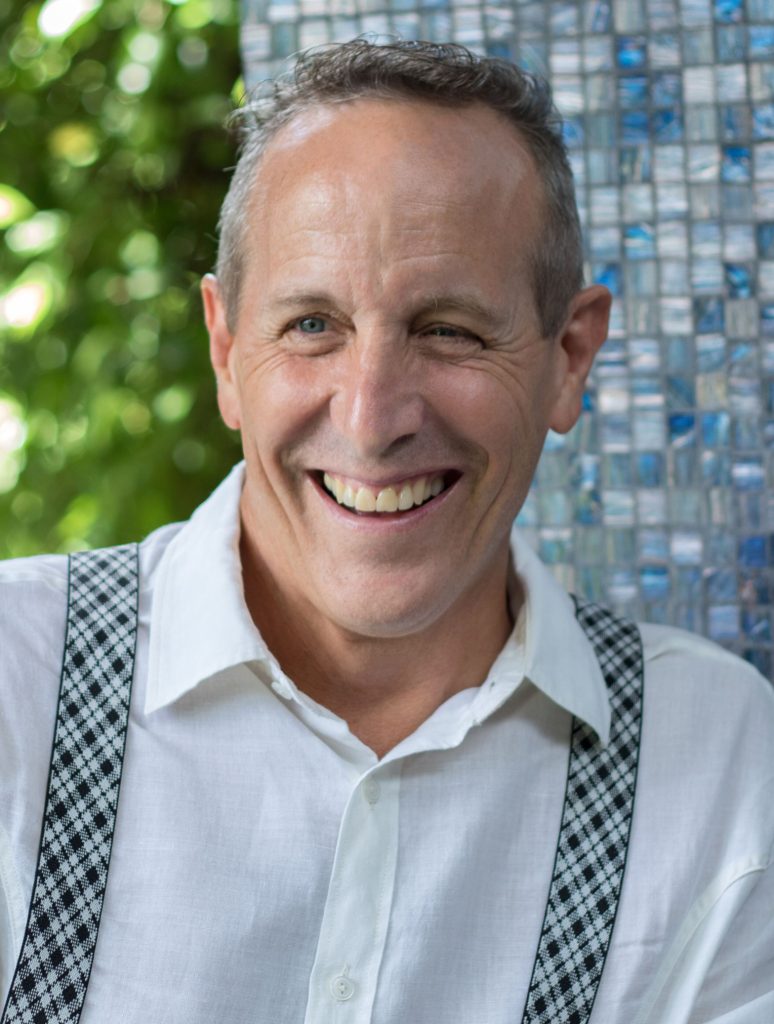
VP, Research & Forecasting, GWI, Beth McGroarty: It seems ridiculous to ask, but how are you doing during the pandemic?
Bensley: Most people know I’m an eternal optimist, so while it sounds funny, super well. It’s an excuse to stay in my office and dive really deep into what I truly love, my design work, in a way I haven’t been able to for years.
Pre-COVID, I traveled 30 weeks a year; that’s 60 percent of my life. If there was a new play in London or I wanted to check on a resort in South Africa, I’d book a flight. Why the hell not?! I loved it, but now—like everyone—I’m grounded. This whole thing has been an epiphany for me: I was flying too much and didn’t need to.
I’ve been designing hotels for 37 years, and normally, I’d hop on a plane with 400 pounds of drawings and fill up a ballroom to make a presentation. Now, I’m using Zoom, and last week, I made my first major presentation virtually for three different hotels in Vietnam. And you know what happened? They didn’t fire me! All the props and on-site presentations were a crutch I didn’t need.
GWI: How do you think COVID will change travel post-virus? What new desires and demands will rise? We were already flirting with extinction before the crisis and preoccupied with issues like sustainability and overtourism. You recently said that the old “luxury is dead”…
Bensley: And now it’s going to be deader…deader than a doornail. I really believe that COVID will make us re-think travel—clear away the junk. I think we’ll travel less post-crisis—I know I will—but mostly I think people will be radically more selective about where they go. That’s a positive for our world.
Certainly, the “monied” people are going to go to places that are more remote and places in deep nature. I think social distancing will remain with us for years.
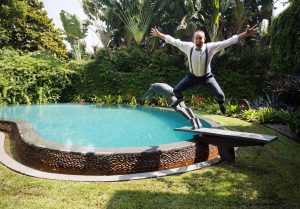 GWI: Positive given the nightmare of overtourism…
GWI: Positive given the nightmare of overtourism…
Bensley: Southern Thailand had such beautiful beaches and great corals, but all of that has been shittered—(laughing) that’s the technical term for destroyed—because of mass tourism. These huge busloads of tourists were given booties to walk on and crush the corals, so they’re basically dead. I think COVID will curb that kind of overtourism in Thailand and in many other parts of the world and prove a catalyst for a better, less destructive tourism.
GWI: Any other COVID silver linings?
Bensley: Yes. We have realized that the inherent problems of the wildlife trade have made the world ill, and it will keep up the pressure on places like China and Vietnam to stop this insatiable consumption of the world’s wildlife—and all the poaching that ends up on the dining tables of Asia’s rich and famous. Since COVID, China has declared that wildlife is illegal to catch and eat—forever.
The whole reason for our Shinta Mani Wild tented camp in the Cardomam National Forest has been to be a stronghold against illegal wildlife poaching for Asian dining tables. We take out 12–20 snares a day.
Researchers recently defrosted two pangolins from a 2017 Singapore raid—a fave to eat in China and believed to cure all ills—and found the flesh has sister COVID viruses. Terrifying. Consuming wildlife has brought the world to its knees, and this experience will, I pray, make it stop.
A “blue” lining: I’ve been in Bangkok for 37 years, and right now, the time before our New Year’s festival Songkran, we usually have the hottest and most polluted skies. I have never seen blue skies like this. COVID is one hard way to grasp the unbelievable impact that just a couple of weeks without cars and polluting the air can make.
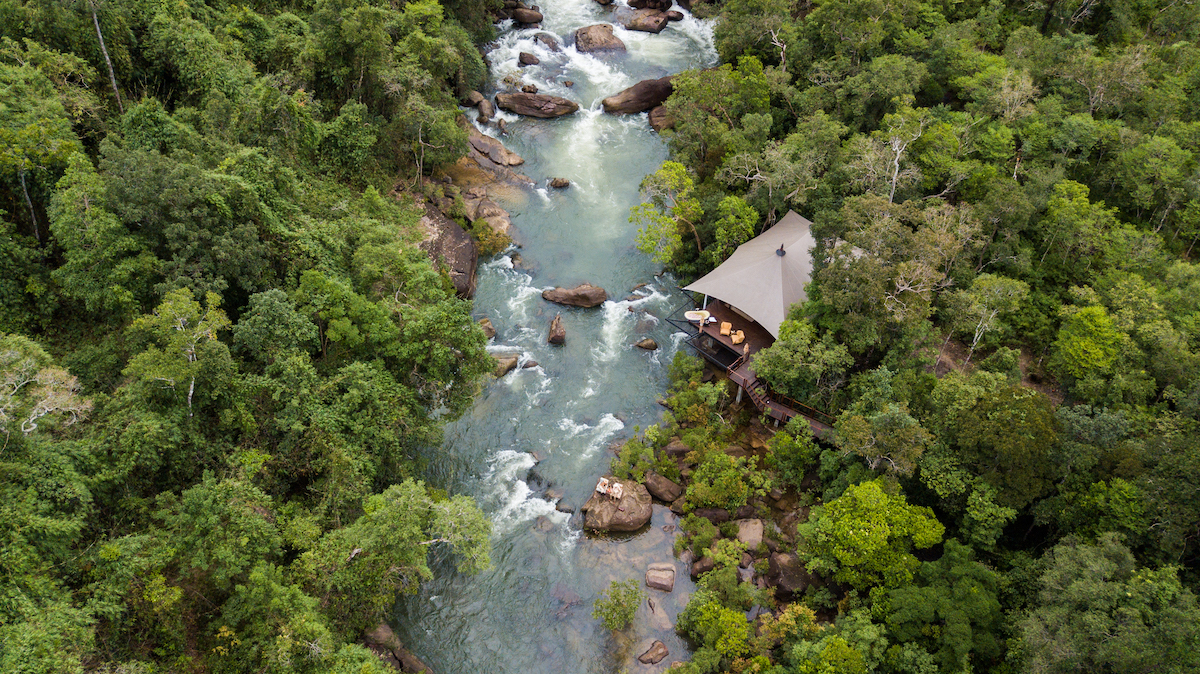
GWI: Coronavirus has, obviously, rocked the travel industry. How has it impacted your four properties? Any advice for other owners?
Bensley: We just closed our hotels: no customers. But at Shinta Mani, I still have to patrol and protect the several million hectares of forest, so I’m still employing most of our 115-person Wilderness Alliance army, and it’s coming out of my pocket, but I won’t let it go.
In our Siem Reap hotels, we employ 240 kids, and they’re already very poor, and the $200–$300 they make a month supports, on average, eight family members. I’m keeping employees on payroll and will grin and bear it as absolutely long as I can—and hope other owners will too.
One issue is people wanting their money back for reservations, but some hotels are taking people’s deposits to pay their staff, etc. I call bullsh*t: Hospitality needs to live by standards, or we lose all respect. COVID is no excuse to take people’s money to pay for your mismanagement. We, of course, encourage people to postpone not cancel—and we’re offering all kinds of extras if they do. But the right thing to do is to give people a full refund if they want it.
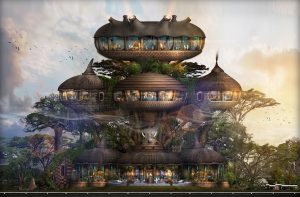
GWI: Tell us about a few upcoming projects you’re excited about—so we can fantasize about future travel…
Bensley: We’re—hopefully—just about to open a Capella in Hanoi across from the opera house. The property has layers of history: It was first an actor’s residence, then a whorehouse, then an army depot. It’s a 42-room hotel with a really European feel, and all of the suites are based on different opera characters at the turn of the last century: It has a diva floor, a drama floor, and actress and actor floors. I had a ball with this project!
The World Wild “human zoo” project in Guangdong, China, is my favorite because it will have such a powerful impact on the country’s young people. It’s a massive zoo and seven-hotel project where 95 percent of this huge piece of land is for rescued, abused animals to run wild (there will be no predators)—while 5 percent is for human “viewing cages.” A train will take people (and we expect 5–10 million visitors a year) to eight different whistle-stops, and at each, they will experience something like an amazing Broadway show, educating them on different aspects of wildlife, environmental protection and sustainability.
So far, we’ve designed 2,400 hotel rooms for brands like Four Seasons and Conrad. Right before COVID, we had this giant meeting with the Communist leader of southern China and 48 of his entourage. We filled up a ballroom with 130 feet of drawings and mesmerized them for six hours. At the end, their leader gave his full approval, saying this was the best thing we could possibly do. So the project is on strong legs!
We’re committed to designing the “zoo”—a better word is the sanctuary—of the future. I’ve hired a zoologist from England full time, and for a year and a half, he’s been researching the very best practices for wildlife from all over the world—and getting expert opinions from Africa to Australia.
GWI: One final thought about human life and travel post-COVID?
Bensley: We will—and we must—learn to slow down and appreciate Mother Earth.
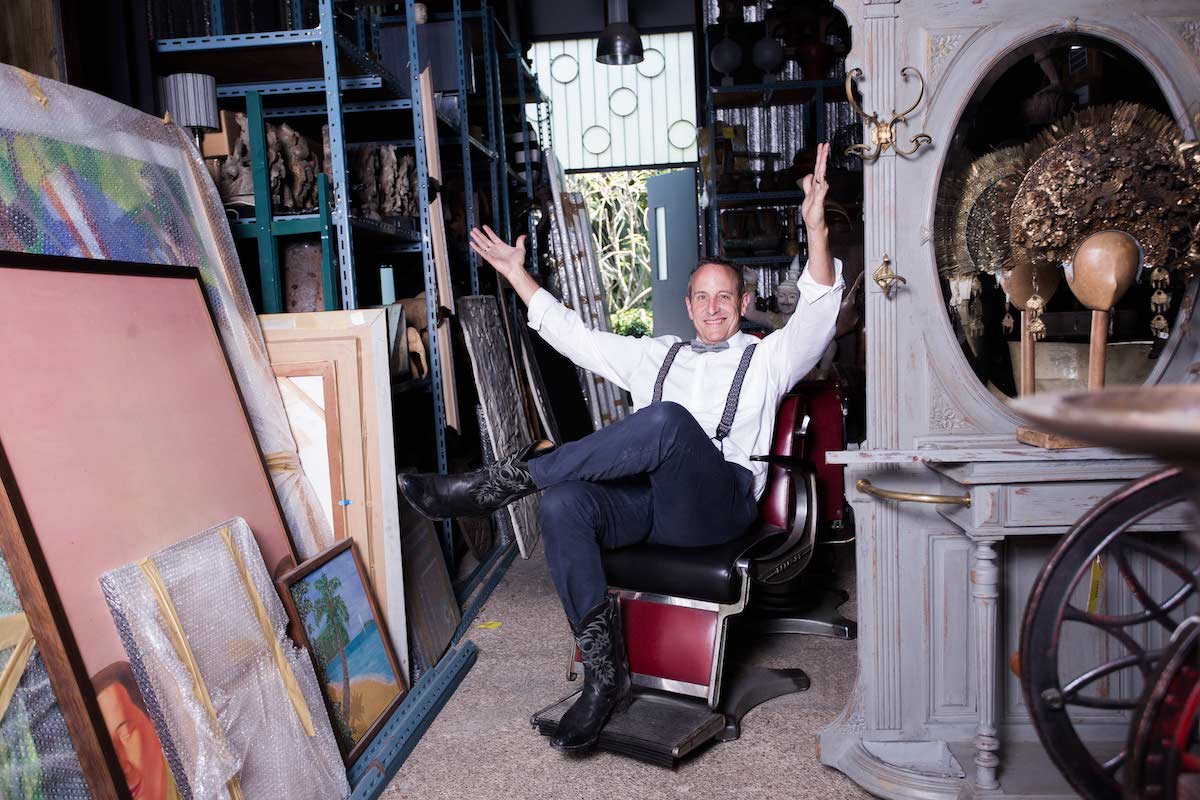
Read Bensley’s important, new Sensible Sustainable Solutions—a 20-page, easy-to-read document on how to build and operate a better, more sustainable hotel.
























































Thanks a lot to you for sharing the true and insightful information regarding the quanda bill bensley. Here, these kinds of ideas were much needed. I really appreciate that you have provided the data too, really appreciative and useful blog for us. Looking for more!!If possible visit this website Seasonz.co.nz to gain more idea or tips on the same.
Most of all I agree on the need to be more selective about traveling and consumption overall. Personally, I’m going to think twice about whether I really need a thing or not. I hope, that the “blue” lining won’t fade away soon. Thanks for the article.
good insights, thanks!
Past pandemics have shown that travel returned to normal pretty soon after the epidemic was over. Think of Ebola, H1N1, SARS. Let’s see what happens next! I would appreciate more quality tourism and less overtourism. Together with researchers from Australia, Israel, Spain and Germany we want to find out if travel behaviour really changes after this pandemic. So we would appreciate opinions of industry experts that participate in our survey: https://es.surveymonkey.com/r/8CXYC63.
Future travel in airplanes, with several hundred people, will require “health certificates” to prove that you are not going to contaminate any of the other passengers. This is going to be a universal system that must be acceptable to all nations. A good job for the Global Wellness Group. Wellness is now the “order of the day” and there will be a large scale demand to prove yourself to the rest of the world.
As much as I love travelling with families and friends it is true that I will be more particular about where I go and how I host events in the future as I am certain more people will feel as I do. I will do a lot more research on the venue and will need to be convinced that this location is life-changing to warrant me going there.
Great article, thank you Bill! Let’s turn the Coronavirus into an opportunity to make some big changes to our world for the benefit of our planet and humanity as a whole!!
Loved the Article Bensley,
We find healing when we connect with nature and this allows us to slow down so we can listen to our inner self. If the world were to begin to do this with all the technology to enhance our lives, this would be a wonderful place to be!!!
“We will—and we must—learn to slow down and appreciate Mother Earth.” – I agree with Bill! Awesome article!
Great!
Absolutely beautiful ‘fantasyland projects” but love it . Loved how the project is properly researched.
When society starts to change its values, and a majority of them concern wellbeing, sustainability, personal development, love for Nature… tourism will, of course, reflect this new lifestyle. As experiences were the core of traveling, I’m sure that wellbeing experience will be of the utmost importance to offer. However, I also think that spas and alike will have to prove safety and extra-hygiene. People will demand very low groups (not sure whether non-siblings will feel confidence to share the space and water with unknown people). Forest bathing, outdoor yoga, mindfulness, sound baths, etc. and all tailor-made experiences relating such outdoor activities will be the kings.
Take time to breathe and fully appreciate the space around you, take care of the space, nature and yourself.
Slow down, appreciate mother earth following the natural rhythms of nature .
Thank you